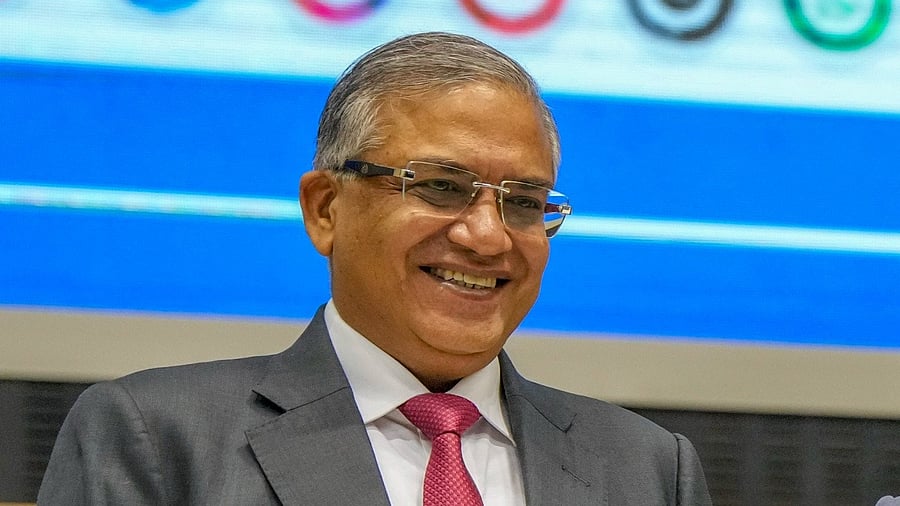
Chief Election Commissioner Gyanesh Kumar
Credit: PTI File Photo
New Delhi: Facing flak from the Opposition over its handling of electoral process, the Election Commission (EC) on Tuesday invited top leaders for an "interaction" to further strengthen the processes on a "mutually convenient" date besides seeking suggestions from national and state parties to address "any unresolved" issues at various levels.
The latest exercise, initiated by the newly-appointed Chief Election Commissioner Gyanesh Kumar, comes at a time Opposition parties have joined hands to add the issue of multiple Electoral Photo Identity Cards (EPIC) bearing identical numbers to their litany of complaints against the poll body's conduct of elections across the country.
The ongoing Budget Session had witnessed vociferous protests by the Opposition parties over the EPIC issue with Leader of Opposition in Lok Sabha Rahul Gandhi on Monday claiming that voter lists are being questioned across the country and that the entire Opposition is demanding a discussion on the issue.
Congress, Shiv Sena (UBT) and NCP (Sharadchandra Pawar) have raised concerns over the rise of 40 lakh voters in Maharashtra in five months between Lok Sabha and Assembly elections, while Trinamool Congress has raised the EPIC issue in West Bengal.
BJD has raised concerns over "discrepancies" in the number of people who voted in Lok Sabha and Assembly seats in Odisha, despite simultaneous polling happening. Questions were also raised about voter turnout data too.
In a statement, the EC invited suggestions from national and state parties "for any unresolved issues" at the level of Electoral Registration Officer (ERO), District Electoral Officer (DEO) or the Chief Electoral Officer (CEO) by April 30. Parties are one of the 28 key stakeholders identified by the EC covering all aspects of electoral processes.
"In an individual letter issued to political parties today (Tuesday), the Commission also envisaged an interaction with the party presidents and senior members of the party, at a mutually convenient time, to further strengthen electoral processes in accordance with the established law," an EC statement said.
In its letter, the EC also said that the Representation of the People Act 1950 and 1951, Registration of Electors Rules, 1960, Conduct of Election Rules, 1961, orders of Supreme Court and instructions, manuals and handbooks issued by the poll body from time to time have established a decentralised, robust and transparent legal framework for holding free and fair elections.
Last week, Kumar had instructed CEOs, DEOs and EROs to hold regular interactions with parties, resolve any suggestions received in such meetings strictly within the legal framework already in place and submit an action taken report to the Commission by March 31. The EC also urged parties to proactively use this mechanism of decentralised engagement.
